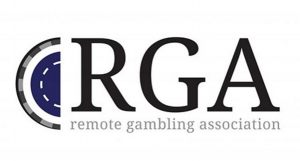The rise of online gambling over recent years cannot be argued with. Since internet gambling began in the mid-1990s, the industry has grown beyond all recognition and is now one of the largest markets in the world, while still being one of the fastest growing.In August of 2005, as a response to this growth, the Association of Remote Gambling Operators (ARGO) and the Interactive Gaming, Gambling, and Betting Association (IGGBA) merged together to form the Remote Gambling Association (RGA).In 2011, the RGA hit the headlines when they hired Sue Rossiter as their Director of Projects, have previously held the positions of Sue Rossiter was previously Interim Principal Officer at the Gordon Moody Association, Deputy Chief Executive at the British Amusement and Catering Trades Association (BACTA) and Head of Policy at the Gambling Commission, Ms Rossiter was a strong and trusted name for the Association to add to their staff.
What is Remote Gambling?
A bill passed in New Jersey, USA, in 2010, defined remote gambling as:”Gambling in which persons participate by the use of remote communication”The term is usually used to refer to internet gambling, due to the size of the online gambling market, but remote gambling can also refer to gambling that takes place via the use of other remote tool, such as telephone, television, radio, or any other communication device.
What is the RGA?
The RGA is the largest online gambling trade association on the planet, and represents a large majority of the world’s biggest licensed and stock-market listed gambling operators, as well as software providers. In simple terms, the job of the RGA is to represent the interests of this selection of remote gambling companies.
What does the RGA do?
The representation provided to these remote gambling companies by the RGA includes reacting and discussing legislation and regulation changes in certain countries. For example, in 2015, when Italy announced a change in tax laws which saw a 22% tax for remote gambling companies, the chief executive of the RGS, Clive Hawkswood, made his opinion clear, saying:“We very much welcome the switch to a gross profits base for the tax… It’s something we have been calling for since we submitted a tax report to the Italian government a few years ago. However, a rate of 22 per cent is higher than it should be.”Another example from the same year, was when the EU’s Fourth Anti-Money Laundering (AML) Directive was implemented. This change saw remote gambling covered by the same regulations as land based casinos for the first time, in terms of AML laws.The RGA released a document to their represented companies at the time, with Mr Hawkswood saying:“Our first edition of these guidelines was well received and, more importantly, provided a useful tool for companies in the online gambling industry.“In this edition we have, among other things, sought to anticipate some of the changes that will flow from implementation of the EU’s Fourth AML Directive.“We will keep the guidelines under review so that they continue to reflect any new developments.”The RGA was openly supportive of the changes, saying that were likely to be useful further afield than Europe, with a statement from the Association saying:“Although many of these guidelines are specific to countries in the EU and the regulatory and legislative structures within EU member states, the principles and many of the suggestions for good practice will have a wider geographical application.”
Publications
The RGA have released a variety of publications on the subject of remote gambling. Many of these publications are available to view on the Association’s website. Subjects include regulations and tax framework, good practice guidelines, integrity issues, and more.
Responsible Gaming
The most important issue facing the remote gambling industry since its inception, and an issue that is growing in importance every day, is that of responsible gambling.As they are at the forefront of the industry, it is the responsibility of the RGA to also be at the forefront of the fight for responsible gambling practice.To prove their commitment to the cause, RGA have published a selection of their guidelines on their website to advise players on responsible gambling, the list in full is as follows:
- You’re buying fun, not investing your money
- Gambling should be done in moderation and undertaken as a form of leisure
- Before playing, set limits on how much time and money you’re going to spend
- If you need to, use the deposit limit tools to help maintain control
- Avoid chasing losses
- Only gamble with money you can afford to lose
- Keep up other interests and hobbies – don’t let gambling take over your life
- Don’t let gambling affect relationships with family and friends
- Don’t gamble in order to escape from stress or boredom
- If you need a break from gambling make use of the self-exclusion tools provided
Self-Exclusion
Self-exclusion has proven to be one of the most effective tools when promoting responsible gambling, and specifically for protecting those with gambling issues or addiction.Self-exclusion is fairly self-explanatory as a tool, it is the act of excluding yourself from one or many websites for a set amount of time to remove the temptations that some feel when it comes to gambling. Self-exclusion also means that you will not receive promotional material from the sites/venues that you have excluded yourself from during the self-exclusion period, and you will not be automatically added back onto lists once the period has ended.It is recommended on the RGA website that you also detach yourself (via ‘unfriend’, ‘unlike’ or ‘unfollow’ options) from the relevant gambling sites on social media, as the databases used on these accounts are not always the same as the sites themselves, so you could still receive promotional material.RGA promotes self-exclusion, but legally are not able to implement it themselves. It is up to the player to contact the relevant websites to ensure that they are excluded from them and that all accounts are closed.Protecting those with gambling issues and other vulnerable players is something that the RGA must take seriously, and they do, you will also find the number for the National Gambling Helpline (Freephone 0808 8020 133) and information on GamCare’s NetLine, both of which are dedicated to helping those with gambling problems.Contact details for all relevant RGA sites are also available on the Association’s website.
Fair, honest, safe and fun
The regulations and licensing section of the RGA website sets out its belief that regardless of legality and licensing, people will always find a way to access remote gambling sites:“There may be differences of opinion about the exact number of consumers involved or how much they are gambling, but there can be no doubt that the market is substantial. It will continue to exist and thrive even if there are no European-licensed operators at all, and European consumers will continue to access it.”The Association’s position on the topic is set out in a report named “Fair, honest, safe and fun: The case for cross border gambling in the European Union”The report focuses on the legality of remote gambling within the European Union, as stated in Articles 43 and 49 of the EC treaty, which can and do apply to gambling, as a legitimate legal service.The opinions of the RGA are clear here, with no punches pulled on statements such as:“Prohibition is not a realistic option. It is only by regulating operators rather than by prohibiting them that the gambling public across Europe can be ensured of proper protection.”And:“It is the confirmed belief of the RGA that only one conclusion can be reached: reputable, well regulated cross border gambling operations pose no threats that cannot be fully addressed and they offer fair, honest, safe and fun products for consumers.”The report is a follow-on from a version published by ARGO in 2015, prior to the merger with IGGBA and intends to explain, and in its way, prove, that properly well-regulated EU-based operators should have full access to European markets.Obviously, considering their position as an association that represents those same EU-based operators, it could be claimed that there is a certain vested interest from the RGA in the findings set out in the report.The full “Fair, honest, safe and fun: The case for cross border gambling in the European Union” can be found here.
CMA Investigation
There have been many disputes and issues that the RGA has been involved with as a representative of one, several, or all of the companies under its umbrella.One of the largest of these was in late 2016, when the Competition and Markets Authority (CMA) stated that gambling “shouldn’t be a con” and launched a large-scale investigation into the fairness of remote gambling, stating that some companies may be breaking the law by making it difficult for players to access their winnings:”We’ve heard worrying complaints suggesting people may be lured into signing up for promotions with little chance of winning because of unfair and complex conditions.”The Gambling Commission supported the CMA’s inquiry, with chief executive Sarah Harrison saying:”Gambling, by its very nature, is always going to involve risk, but customers must have faith that if they win, they will not end up feeling that the deck is stacked against them because of an obscure condition that they did not properly understand.”One of the only voices that came out in support of the gambling companies when the investigation was announced, was the RGA, who said that pre-judging the outcome of the inquiry would be wrong, and that it believed there was no reason to think that there were widespread failings amongst RGA members.The investigation, which ultimately shifted its focus primarily to sports betting, is still ongoing at the time of writing.












